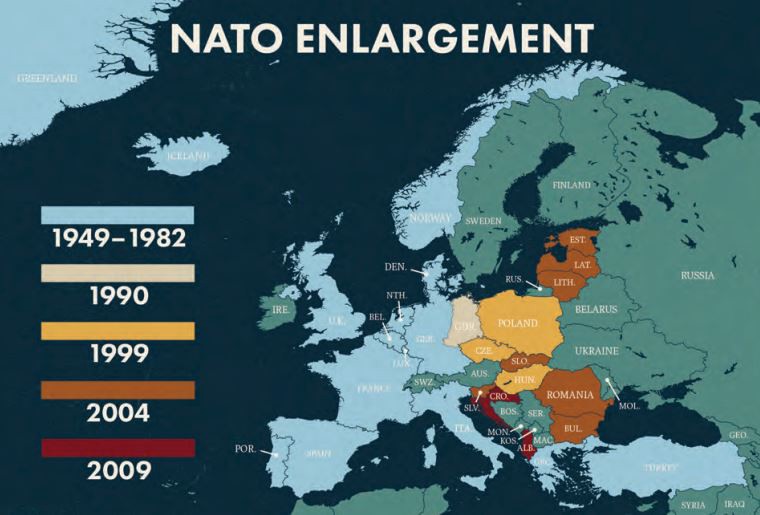
Document-06-Record-of-conversation-between
Above PDF is of Document 06. A record of conversation between Mikhail Gorbachev and James Baker in Moscow. (Just excerpts listed below…)
This Gorbachev Foundation record of the Soviet leader’s meeting with James Baker on February 9, 1990, has been public and available for researchers at the Foundation since as early as 1996, but it was not published in English until 2010 when the Masterpieces of History volume by the present authors came out from Central European University Press. The document focuses on German unification, but also includes candid discussion by Gorbachev of the economic and political problems in the Soviet Union, and Baker’s “free advice” (“sometimes the finance minister in me wakes up”) on prices, inflation, and even the policy of selling apartments to soak up the rubles cautious Soviet citizens have tucked under their mattresses.
Turning to German unification, Baker assures Gorbachev that “neither the president nor I intend to extract any unilateral advantages from the processes that are taking place,” and that the Americans understand the importance for the USSR and Europe of guarantees that “not an inch of NATO’s present military jurisdiction will spread in an eastern direction.” Baker argues in favor of the Two-Plus-Four talks using the same assurance: “We believe that consultations and discussions within the framework of the ‘two+four’ mechanism should guarantee that Germany’s unification will not lead to NATO’s military organization spreading to the east.” Gorbachev responds by quoting Polish President Wojciech Jaruzelski: “that the presence of American and Soviet troops in Europe is an element of stability.”
The key exchange takes place when Baker asks whether Gorbachev would prefer “a united Germany outside of NATO, absolutely independent and without American troops; or a united Germany keeping its connections with NATO, but with the guarantee that NATO’s jurisdiction or troops will not spread east of the present boundary.” Thus, in this conversation, the U.S. secretary of state three times offers assurances that if Germany were allowed to unify in NATO, preserving the U.S. presence in Europe, then NATO would not expand to the east. Interestingly, not once does he use the term GDR or East Germany or even mention the Soviet troops in East Germany. For a skilled negotiator and careful lawyer, it seems very unlikely Baker would not use specific terminology if in fact he was referring only to East Germany.
The Soviet leader responds that “[w]e will think everything over. We intend to discuss all these questions in depth at the leadership level. It goes without saying that a broadening of the NATO zone is not acceptable.” Baker affirms: “We agree with that.”
Turning to German unification, Baker assures Gorbachev that “neither the president nor I intend to extract any unilateral advantages from the processes that are taking place,” and that the Americans understand the importance for the USSR and Europe of guarantees that “not an inch of NATO’s present military jurisdiction will spread in an eastern direction.” Baker argues in favor of the Two-Plus-Four talks using the same assurance: “We believe that consultations and discussions within the framework of the ‘two+four’ mechanism should guarantee that Germany’s unification will not lead to NATO’s military organization spreading to the east.” Gorbachev responds by quoting Polish President Wojciech Jaruzelski: “that the presence of American and Soviet troops in Europe is an element of stability.” The key exchange takes place when Baker asks whether Gorbachev would prefer “a united Germany outside of NATO, absolutely independent and without American troops; or a united Germany keeping its connections with NATO, but with the guarantee that NATO’s jurisdiction or troops will not spread east of the present boundary.” Thus, in this conversation, the U.S. secretary of state three times offers assurances that if Germany were allowed to unify in NATO, preserving the U.S. presence in Europe, then NATO would not expand to the east. Interestingly, not once does he use the term GDR or East Germany or even mention the Soviet troops in East Germany. For a skilled negotiator and careful lawyer, it seems very unlikely Baker would not use specific terminology if in fact he was referring only to East Germany. The Soviet leader responds that “[w]e will think everything over. We intend to discuss all these questions in depth at the leadership level. It goes without saying that a broadening of the NATO zone is not acceptable.” Baker affirms: “We agree with that.”
Gorbachev has always persisted in that he was given reassurance that America (USA) would not expand NATO…
Has the United States of America ever been truthful with any country? Why did we lie? Why did we not accept that our word is important? Why are we this way?
Document 6 is from…
National Security Archive,
Suite 701, Gelman Library, The George Washington University,
2130 H Street, NW, Washington, D.C., 20037,
Phone: 202/994‐7000, Fax: 202/994‐7005, nsarchiv@gwu.edu
Gorby was vindicated on this subject and we are implicated as liars…
Time and time again this is the way it is, has been and is now…
The USA Administration lies, the media supports it and the people accept it…
WtR

